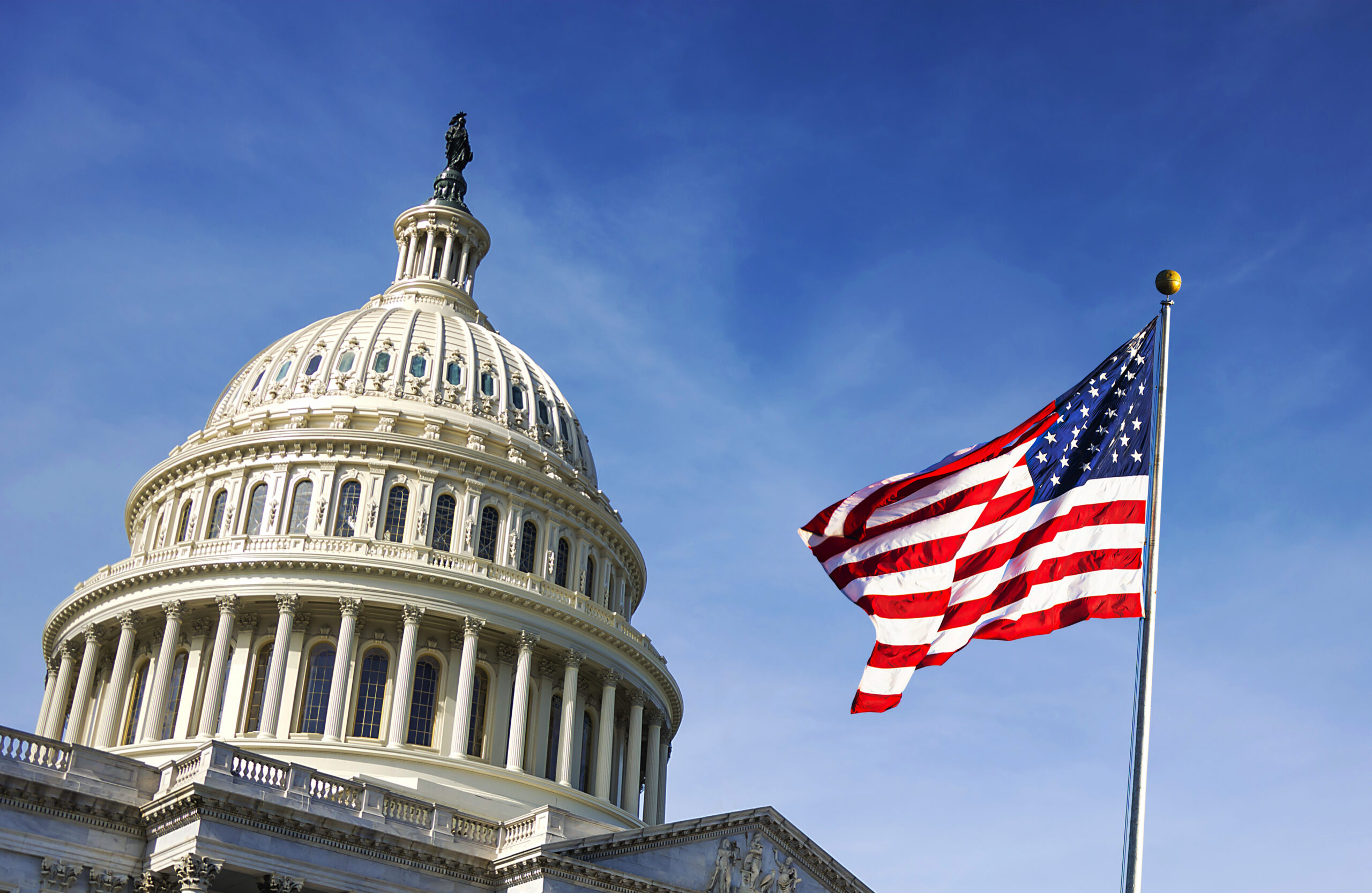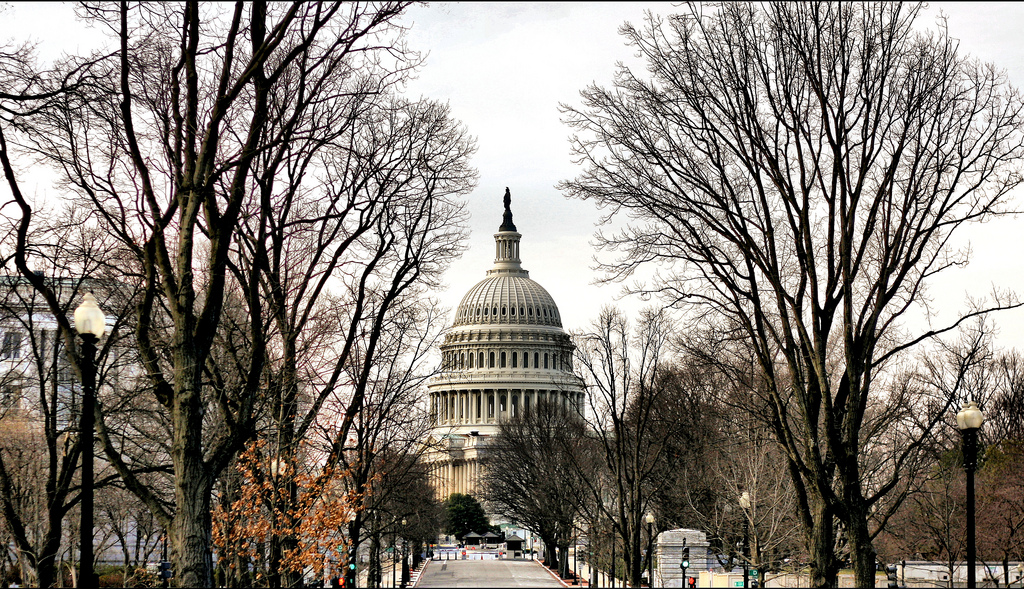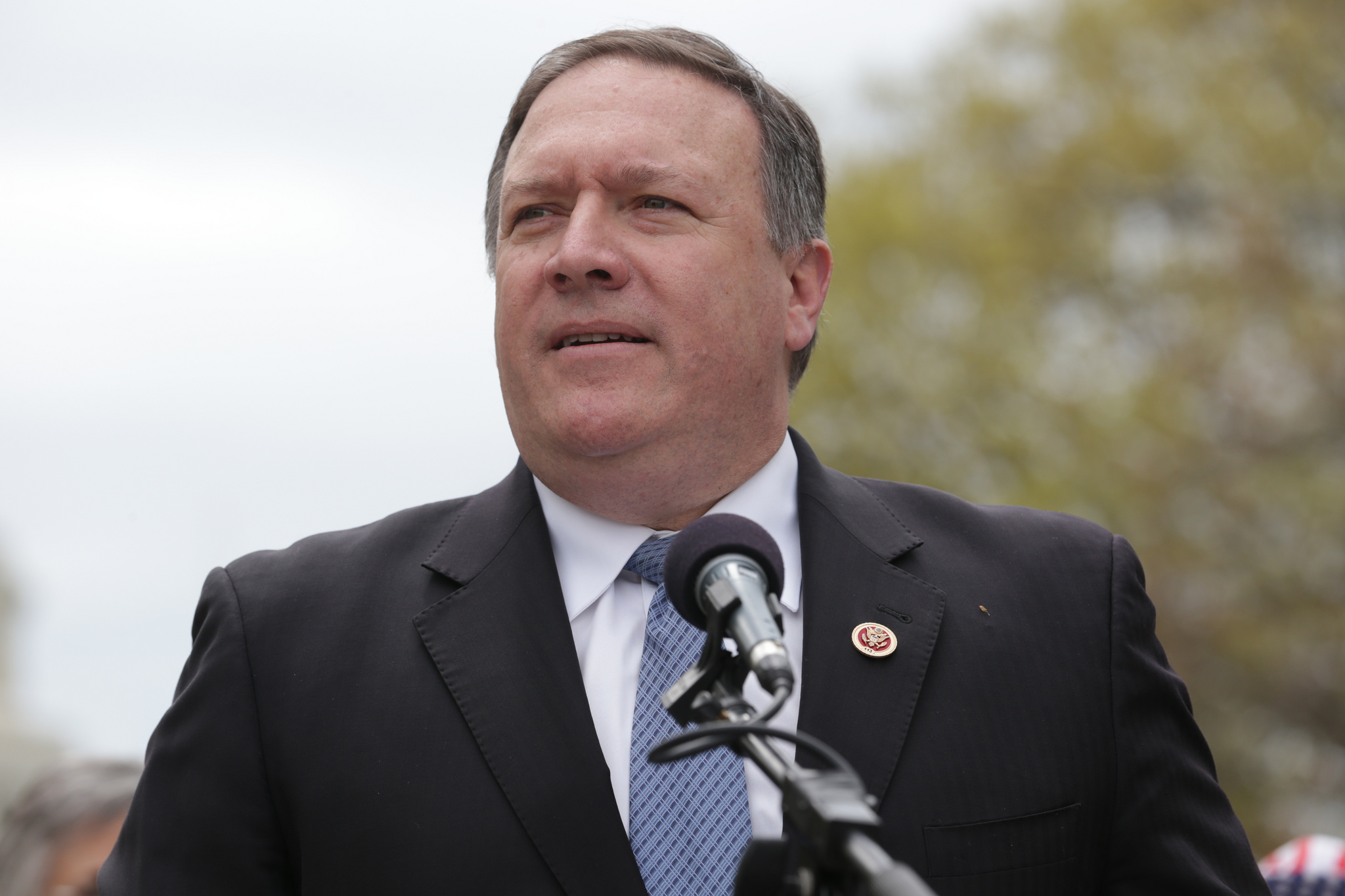Republicans are keeping their options open… On Thursday, multiple Republicans suggested Elon Musk become the …

Virginia's Public Square
Virginia's Public Square

Republicans are keeping their options open… On Thursday, multiple Republicans suggested Elon Musk become the …

The United States Senate has passed a motion urging lawmakers in the House of Representatives …

As the first-ever veto from President Trump will strike down the border wall rebuke, it could set up the first-ever Supreme Court case directly dealing with the formalization of the emergency powers of the commander in chief under the National Emergencies Act.

Last week, the Republican-led U.S. Senate voted on an appropriations bill to fund the departments of Labor and Health and Human Services, but the Libertarian-minded Rand Paul (R-KY) forwarded an amendment into the process that provoked the question: “Are Republicans really pro-life?”
When he took to the floor of the Senate to expounded upon his measure, Paul said: “Planned Parenthood ends the lives of 325,000 babies each year – that’s about 900 babies everyday.” He charged that his majority party must do everything in their power to stave off agencies and groups receiving federal funding to perform abortions.
Paul forwarded an amendment into the bill that would have barred Planned Parenthood and other abortion outlets from receiving federal funding, but the amendment failed by a vote of 45 to 48, according to a report from the Washington Examiner.
Through a press release, Senator Paul said the move was to “expose Republicans for blocking his efforts to protect life so they could instead greatly expand the welfare-warfare state,” rather than “stop[ping] taxpayer dollars from going to Planned Parenthood and other entities that perform abortions.”
The amendment would not have prevented healthcare providers that do not perform abortions from continuing to receive federal funding for women’s health services, but would have stopped other entities from receiving federal funding that performed abortions. If the said agencies, groups, and providers ceased their abortion operations, federal funding could be restored.
When Paul announced his amendment to the appropriations bill, he said, according to a statement, “One of the top priorities for a Republican Congress that professes pro-life values on the campaign trail should be to stop taxpayer funding for abortion providers.” He added, “This is our chance to turn our words into action, stand up for the sanctity of life, and speak out for the most innocent among us that have no voice.”
Currently, the public’s opinion of cutting funds to Planned Parenthood sits at about 50-50, along strict political party lines.
Last year, Planned Parenthood received over $500 million in taxpayer funds. Although the advocacy group is forbidden from spending federal funds directly on most abortions, pro-life supporters warn that “subsidies earmarked for non-abortion purposes ultimately enable abortion groups to commit more abortions by freeing up money from their other revenue services,” the report states.
In May, the Trump Administration announced that they would propose a measure to slash federal dollars going to taxpayer-funded abortion organizations like Planned Parenthood under Title X.
“The proposal would require a bright line of physical as well as financial separation between Title X programs and any program (or facility) where abortion is performed, supported, or referred for as a method of family planning,” a Trump Administration official told The Weekly Standard at the time.
The Title X law established in 1970 states, “None of the funds appropriated under this title shall be used in programs where abortion is a method of family planning.” However, in the decade following, the law was re-interpreted to allow programs to refer patients for abortion procedures, be co-located with abortion clinics, and partner with federal lobbyists to vie for pro-abortion policies and more taxpayer funding. All this was done as long as federal funding did not “directly” fund abortions.
The Kentucky Senator’s amendment would have prohibited taxpayer dollars being made available to prohibited entities under the original law.
“Notwithstanding any other provision of law, none of the funds made available by this Act may be made available either directly, through a State (including through managed care contracts with a State), or through any other means, to a prohibited entity,” the amendment reads.
The term “prohibited entity,” according to the language of the amendment, means “an entity, including its affiliates, subsidiaries, successors, and clinics…is an organization described in section 501(c)(3) of the Internal Revenue Code of 1986 and exempt from taxation under section 501(a) of such Code…an essential community provider described in section 156.235 of title 45, Code of Federal Regulations…primarily engaged in family planning services, reproductive health, and related medical care…performs, or provides any funds to any other entity that performs abortions, other than an abortion performed.”
So-called “approved” entities that may perform abortions while receive federal funding only perform abortions in the cases of “a pregnancy that is the result of an act of rape or incest…the case where a woman suffers from a physical disorder, physical injury, or physical illness that would, as certified by a physician, place the woman in danger of death unless an abortion is performed…including a life endangering physical condition caused by, or arising from, the pregnancy itself.”
During his speech before the vote on the amendment, Paul had noted that “[t]he dirty little secret is that Republican leadership is blocking my amendment to defund Planned Parenthood” by filling the amendment tree – later saying, “The question is, what is more important to these Republicans? Saving lives or spending money?”
The Republican leadership rebuked Paul’s claims of them blocking the amendment, allowing a vote to occur on Thursday. Regardless, the measure did not pass.
“While I am disappointed in the outcome of this vote, I will never apologize for standing up for life. If it took exposing the preference of so many in my own party to continue reckless spending over protecting the innocent, it was a fight worth having,” Paul said.

After most Democrats opposed CIA Director Mike Pompeo’s hawkish views on foreign policy, the Senate confirmed President Donald Trump’s pick for secretary of state on Thursday afternoon.

As the legislative agenda slows down amid the Easter recess, the Republican leadership is looking to infrastructure to bolster favor in midterm elections.

Just hours before yet another government shutdown, President Donald Trump reluctantly signed the $1.3 trillion congressional omnibus bill set to keep the federal government open through September. Trump’s Twitter teased a possible veto early Friday morning as he complained that the legislation did not include funding for the border wall with Mexico or deportation protections for the 800,000 “DREAMers.” Nevertheless, the president moved forward with the signing, citing the need for military funding.
Before the 256-167 House vote passing the bill to be signed by the president, Washington lawmakers had just over 16 hours to read the 2,232-page omnibus bill after it was posted online.
“Shame, shame. A pox on both Houses – and parties,” Senator Rand Paul (R-KY) said via Twitter. “No one has read it. Congress is broken,” he added.
As members of Congress fled Washington, the bill also lined the pockets of lawmakers after budget increases for operating costs of both chambers of the legislature were included.
According to a report from the Washington Free Beacon, the Senate increased its total budget to $919.9 million, up $48.8 million from fiscal year 2017. Salaries of officers and employees were also increased by $12.6 million. The Senate also increased its expense account, as expense allowances are going from $177,000 to $192,000, an increase of $15,000.
“The increase provides funding necessary for critical modernization and upgrades of the Senate financial management system and investments in IT security,” the congressional summary states according to the report.
Moreover, the House increased its budget to $1.2 billion, which is $10.9 million above 2017 levels. However, salaries were kept the same at $22.3 million and expenses were lowered by $4.4 million.
Congressional committee offices also received an increase of $22.9 million in salaries, up from $181.5 million in 2017 to $204.4 million in the final bill.
When Trump signaled a veto of the wasteful spending bill early Friday, Chairman of the House Freedom Caucus Republican Mark Meadows (NC-8) said he would “fully support” the president’s measure, as stated in a post from AP. He also added that the Trump Administration and congressional leaders should, “negotiate a better deal for the forgotten men and women of America.”
Although both parties in Congress wanted to avert a third shutdown this year, the omnibus bill also busted through the federal budget cap, angering conservatives. It also failed to provide a permanent fix for young immigrants protected under the Deferred Action for Childhood Arrivals (DACA) Act, a measure which Democrats have consistently vied to secure.
Trump has pinned the failure for a DACA solution on Democrats, claiming, “They don’t want DACA” and are only using a status for immigrants as “a political football.”
As a crowd gathered in the White House, Trump stood in front of cameras calling the signing of the bill a “ridiculous situation” after a stack of documents over one foot tall was placed to his right. In chastising Congress for its mounds of spending documents released just hours before the vote, Trump said, “You tell me who can read that quickly. Takes a long time to read it.”
In light of funding need for the military, Trump was still highly-dissatisfied with the wasteful omnibus bill, saying there is, “no one more disappointed than me.”

On Thursday, the House voted to reauthorize FISA. President Trump criticizes measure on Twitter. Rand Paul readies for filibuster.